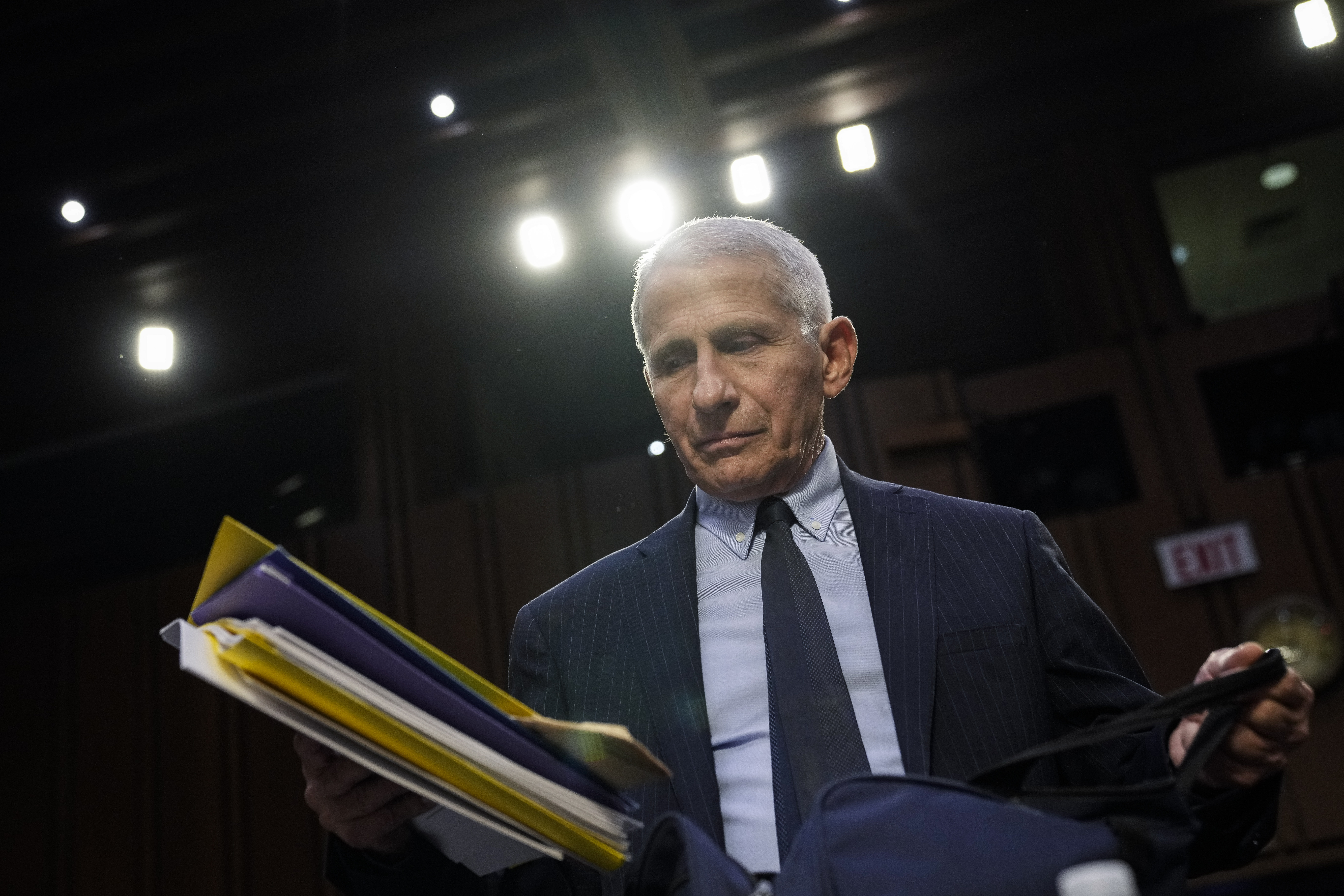Americans who trusted the science when Dr. Anthony Fauci told them to be six feet apart to prevent the spread of COVID-19 learned Wednesday there was no science behind the edict.
After two days of interviews behind closed doors to the House Select Subcommittee on the Coronavirus Pandemic, a news release posted on the website of the House Oversight Committee revealed that “Fauci claimed that the ‘6 feet apart’ social distancing recommendation promoted by federal health officials was likely not based on any data. He characterized the development of the guidance by stating ‘it sort of just appeared.’”
GOP Rep. Brad Wenstrup of Ohio, the panel’s chairman, said Fauci admitted to legislators that “the policies and mandates he promoted may unfortunately increase vaccine hesitancy for years to come.”
“He testified that the lab leak hypothesis — which was often suppressed — was, in fact, not a conspiracy theory,” Wenstrup said. The lab leak theory claims that the coronavirus was released from the Wuhan Institute of Virology in China, and not from natural sources, as Fauci initially claimed.
The release noted that the admission came “nearly four years after prompting the publication of the now infamous ‘Proximal Origin’ paper that attempted to vilify and disprove the lab leak hypothesis.” The release also said Fauci, who denied trying to pressure the CIA on the lab-leak theory, “played semantics with the definition of a ‘lab-leak.’”
“Dr. Fauci’s transcribed interview revealed systemic failures in our public health system and shed light on serious procedural concerns with our public health authority. It is clear that dissenting opinions were often not considered or suppressed completely,” Wenstrup said.
During Fauci’s second day of testimony, he said that he advised colleges to impose vaccine mandates on students.
A release summarizing the first day of Fauci’s testimony quoted Wenstrup as saying that Fauci “signed off on all domestic and foreign research grants without reviewing the proposals and admitted that he was unaware if NIAID conducted oversight of the laboratories they fund.” Fauci, who is now retired, was director of the National Institute of Allergy and Infectious Diseases.
“It is also concerning that the face of our nation’s response to the world’s worst public health crisis ‘does not recall’ key details about COVID-19 origins and pandemic-era policies,” Wenstrup said. The release said Fauci claimed more than 100 times that he could not recall events about which he was questioned.
The release said Fauci continued to deny, as he has in the past, that the National Institutes of Health funded “gain-of-function research in Wuhan,” where COVID-19 emerged, noting that Fauci “repeatedly played semantics with the definition of gain-of-function in an attempt to avoid conceding that NIH funded potentially dangerous research in China.”
Republican Rep. Michael Cloud of Texas, a member of the panel interviewing Fauci, said the former White House adviser has an “amazing ability to either forget what happened or then to find ways to shirk any sort of responsibility for the influence that was had,” according to the New York Post.
“They wash their hands of any sort of responsibility, saying, ‘Oh, those decisions were made by school districts.’ But the school districts know, if you don’t follow the guidance that’s coming out of the federal government, you open yourselves up to lawsuits,” Cloud said.
“He says he’s still not convinced that there was learning loss — that in his view, that’s still really open for discussion. I think [if] you ask any parent, they’ll tell you it was a major hit on their child’s development,” he said.
Wenstrup said Fauci “admitted that the mandate could increase vaccine hesitancy,” according to the Washington Examiner.
“I can’t get into his mind, but I think he felt it was the right thing to do because he thought it would save lives, but he basically was saying the lesson learned [was it] didn’t get into the psyche of America,” Wenstrup said.
“We have a problem in our country, and now people don’t want to get any vaccines,” Wenstrup said. “The mRNA vaccine is different. The messaging was never really good, and I don’t think America ever felt like they were being educated. They were getting indoctrinated,” he said.
Transcripts of the interviews will be released in the future, Wenstrup said.
This article appeared originally on The Western Journal.

























 Continue with Google
Continue with Google